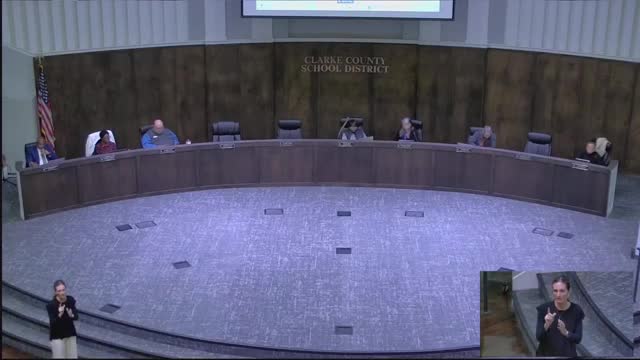School Board Faces Tough Questions on College Advising Program
November 15, 2024 | Clarke County, School Districts, Georgia
This article was created by AI summarizing key points discussed. AI makes mistakes, so for full details and context, please refer to the video of the full meeting. Please report any errors so we can fix them. Report an error »

During a recent government meeting, discussions centered on the Georgia College Advisor contract, highlighting the challenges and effectiveness of college advising services in local high schools. The conversation began with concerns about the district's ability to facilitate college admissions for students, particularly in comparison to other districts.
A key point raised was the transition from what was perceived as a free service provided by the University of Georgia (UGA) to a paid model. However, it was clarified that the district has always incurred costs for college advisors through a partnership with the Georgia College Advising Corps, a program similar to Teach for America. This partnership involves placing trained college graduates in schools for two years to assist students with college planning.
The district's budget for these positions has increased, necessitating board approval to continue funding. Currently, there are college advisors stationed at Cedar and Central high schools. Concerns were voiced regarding the effectiveness of the program, with some parents reporting dissatisfaction with the college advice their children received.
In response, officials outlined the performance metrics used by the college advisors, which include ensuring that every senior receives individualized post-secondary planning, completing the Free Application for Federal Student Aid (FAFSA), and managing college application waivers for eligible students. They emphasized that these advisors work in conjunction with school counselors to provide comprehensive support, particularly for families unfamiliar with the college admissions process.
Despite concerns about the qualifications of recent college graduates filling these roles, officials defended the program, citing the specialized training and intensive summer programs that advisors undergo. They noted that many advisors go on to pursue further education in counseling, contributing positively to the school community.
The meeting underscored the importance of college advising in helping students navigate the complexities of post-secondary education, particularly for those from underrepresented backgrounds. The district aims to enhance its college advising services to ensure that all students have access to the resources they need for successful college admissions.
A key point raised was the transition from what was perceived as a free service provided by the University of Georgia (UGA) to a paid model. However, it was clarified that the district has always incurred costs for college advisors through a partnership with the Georgia College Advising Corps, a program similar to Teach for America. This partnership involves placing trained college graduates in schools for two years to assist students with college planning.
The district's budget for these positions has increased, necessitating board approval to continue funding. Currently, there are college advisors stationed at Cedar and Central high schools. Concerns were voiced regarding the effectiveness of the program, with some parents reporting dissatisfaction with the college advice their children received.
In response, officials outlined the performance metrics used by the college advisors, which include ensuring that every senior receives individualized post-secondary planning, completing the Free Application for Federal Student Aid (FAFSA), and managing college application waivers for eligible students. They emphasized that these advisors work in conjunction with school counselors to provide comprehensive support, particularly for families unfamiliar with the college admissions process.
Despite concerns about the qualifications of recent college graduates filling these roles, officials defended the program, citing the specialized training and intensive summer programs that advisors undergo. They noted that many advisors go on to pursue further education in counseling, contributing positively to the school community.
The meeting underscored the importance of college advising in helping students navigate the complexities of post-secondary education, particularly for those from underrepresented backgrounds. The district aims to enhance its college advising services to ensure that all students have access to the resources they need for successful college admissions.
View full meeting
This article is based on a recent meeting—watch the full video and explore the complete transcript for deeper insights into the discussion.
View full meeting
